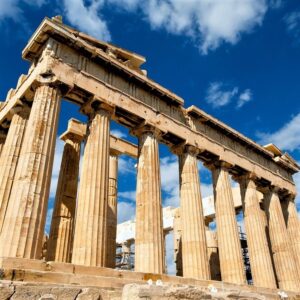What is democracy? It is when people rule. The word has Greek origin – Demokratia. Demos means “people,” and Kratos means “to rule.” It is one of the core values of the modern world, notably in Western society. Democracy is a form of government. However, the idea has changed to various shapes throughout history. So, the understanding of it varies as well.
Many elements define democracy. First, it is the right to speak freely (freedom of speech) and to publish freely. There are many views on whether this freedom should be absolute or if there should be boundaries to it. Related is the right to act freely – as long as one does not interfere with accepted law or other people’s rights.
Further, the freedom of assembly and freedom of association. Hence, that people can meet freely and join or leave certain groups based on their will. The right to vote (General Suffrage), equality, justice, human rights, or sovereignty further define democracy. Pluralism guarantees diverse opinions. There are always some rules though. For example, people can only vote from a certain age.

History
The first time humans used democratic principles were the city-states in Athens. It was the year 507 BC in Athens under the leadership of Cleisthenes, the father of antique democracy. For the next several hundreds of years, the concept spread around Greece and Italy. However, it fell into oblivion after the fall of the Roman republic in 27 BC. In his Politics, Aristotle described this form as the rule of the many for their interest.
The American independence, along with the French revolution, genuinely uplifted and reinvented democracy. From then, throughout the 19th and 20th, it came back to life.
Forms
Direct democracy: Here, people decide without a governing body. That is the classic view of the early modern period. Scholars such as Rousseau and Mill favored it. On the other hand, the American Founding Fathers feared and despised it.
In the Representative form, people elect their representatives who then decide in their name. That is the most common form today.
The Liberal Form is another name for the typical Western understanding.
